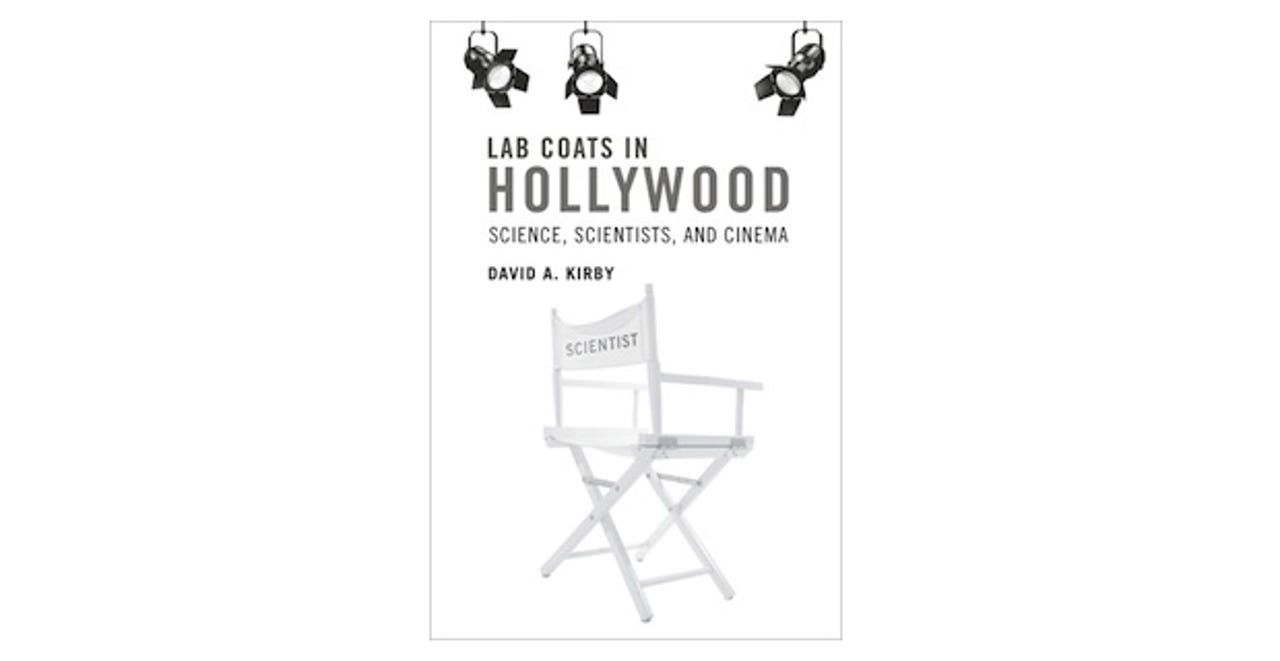Book reviews: Holiday reading

"I came for the crack," a woman once said to me reproachfully at a party. She was miffed that I and the third person in the conversation had embarked on an impassioned discussion of…cryptography. "For me, this is the crack," that third person told her. And so it was for me, too. This is the best justification I can come up with for billing this set of titles as a Christmas round-up.
Lab Coats in Hollywood, written by University of Manchester professor David A. Kirby, looks at the interface between science and entertainment. How much can a scientist hired as an expert consultant for a film expect to be listened to by the filmmakers? How can that scientist navigate the tricky politics between screenwriter and director? What are the consequences if said scientist tries to remedy the fact that the set decoration was devised based on an earlier version of the script and is now no longer accurate? Along the way, Kirby includes the results of historical research and interviews with scientists who have worked on movies both good and bad: Deep Impact, Twister, 2001: A Space Odyssey, The Day After Tomorrow, Jurassic Park. Brian Cox makes a cameo appearance.

Given that the book was only published this year, it's a little disappointing that Kirby didn't widen the field to include TV: the past five to ten years have seen a big upswing in science-based scripted drama and comedy, from Bones and Numb3rs to The Big Bang Theory. In particular, some of Kirby's interviewees echo David Saltzberg, the UCLA physicist who provides scientific accuracy for the latter. Saltzberg has said in interviews that he's learned the hard way not to try to suggest jokes and storylines: the comedy writers are experts in their own field. The science must always serve the story, and, says Kirby, if you can figure out how to improve the scientific accuracy while also improving the story you can make a real difference. If you're a scientist, instead of writing off popular culture, embrace it.
Perhaps the strangest book that came our way this year is Ted Nelson's Possiplex. For as long as I've been writing about computers, Nelson has been a mythical figure toiling away on Project Xanadu. Before the web, before the internet-with-everything, and independently of other visionary greats like Doug Engelbart, Nelson — the son of film director Ralph Nelson and actress Celeste Holm — coined the term 'hypertext' back in 1965. A talk he gave in 1978 to the IBM team creating that company's first PC, three years before its launch, sketched out the future social implications of their drawing-board machine. Although Tim Berners-Lee has credited Nelson's vision, Nelson argues his original vision is quite different from the web and one still worth fighting for. Possiplex is his autobiography.
At first glance, the book looks like the ultimate example of a 1990s desktop publishing failure: a riot of clashing fonts and strange layout. After a few pages, though, your senses orient themselves, and a pattern starts to emerge. Nelson started dreaming of doing something big as early as university. He had many good ideas — perhaps too many — and in 1979, with personal computers emerging, he found the one that has consumed him ever since. They were going to build a world-wide publishing system where anyone could publish hypertext, aimed at hundreds of millions of users, using small, personal computers, in which every piece of content would be stored with a permanent address, where documents would be maintained as a list of pointers to those pieces of permanent (in Nelson's words, 'permanized') content. There would be multiple views: a document might look like paper, but it also might be shown alongside its connections, and users could program new views. Links would be overlays, not embedded (like the web). All uses of content would be visible. The last one, he writes, was the killer: "Everything else on the list was simple, and still is."
I think I want this. Anyone who has to keep redoing their site because of all the broken links has to want something like this. But 35 years on, what we have is the web — and inertia makes it more powerful every day, while Project Xanadu is barely a demonstration (on the web). Possiplex is not the story of roads not taken; it's the story of roads that were taken while the rest of the world was going somewhere else. Small wonder that Nelson concludes: "If you didn't enjoy the story of my life, neither did I."
Last year we reviewed Logicomix, the bestselling graphic novel illustrating mathematics, logic and the life of Bertrand Russell, written by Apostolos Doxiadis. This year we found his earlier novel, Uncle Petros and Goldbach's Conjecture. Continuing the theme of mathematics and madness, the novel tells the story of a mathematical prodigy and his uncle, both of whom become obsessed with proving one of the oldest unsolved problems of mathematics: the conjecture that "every number greater than 2 is the sum of two prime numbers". Uncle Petros has, in fact, been so consumed by this effort for so long that he's lost all contact with other mathematicians, and has failed to publish the truly original work he did along the way until it was much too late. Will his nephew follow the same path? Reading this together with Possiplex should leave you with a new, old adage: be careful what you become obsessed with.
On a visit to Dublin's (relatively) new Science Gallery, which was hosting an exhibition on water, we spotted Tony Allan's Virtual Water. Allan, a professor at King’s College London and the School of Oriental and African Studies, began promoting the concept of 'virtual water' as long ago as 1993 and was awarded the Stockholm Water Prize for it in 2008. He published this popular book earlier this year.
When you think of tallying up your water use, you probably think of the baths and showers you take, the dishes and clothes you wash, and the kettles you fill. But you are far more profligate than that, and in ways you never thought about. What is your biggest source of water consumption? The food you eat. That kilo of beef cost 15,000 litres of water to produce. (And that cup of coffee you've just thrown out half-finished cost 140 litres. How's that for guilt?)
While this book doesn't contain exactly cheery news – the average meat-eating American or European consumes 15 bathtubs of water a day (vegetarian diets cut that down to eight) – it's still fascinating as a whole, new way of looking at things. Water is our most precious resources; the wars of the future are more likely to be over water than oil. Making our consumption conscious and visible is an important contribution.
Finally, Cambridge University is putting Sir Isaac Newton's Principia Mathematica and other papers on the web as part of a wider project to digitise the works of well-known scientists. Cambridge's gift to all of us.
Happy holidays!
Lab Coats in Hollywood By David A. Kirby MIT Press 265 pages ISBN: 978-0-262-01478-6 £19.95
Possiplex: Movies, Intellect, Creative Control — My Computer Life and the Fight for Civilization By Theodor Holm Nelson Mindful Press 380 pages ISBN: 978-0893470043 £19.37
Uncle Petros and Goldbach's Conjecture By Apostolos Doxiadis Bloomsbury USA 212pp ISBN: 978-1-58234-128-6 £8.99
Virtual Water Tony Allan I. B. Taurus 384 pages ISBN: 978-1845119843 £12.99